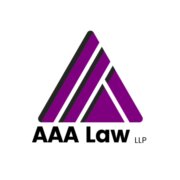Best Corporate & Commercial Lawyers in Toronto
Share your needs with us, get contacted by law firms.
Free. Takes 2 min.
List of the best lawyers in Toronto, Canada
About Corporate & Commercial Law in Toronto, Canada
Corporate and commercial law in Toronto refers to the legal framework that governs how businesses are formed, operated, managed, and dissolved in the city. This area of law extends to a wide range of activities, including how companies are incorporated, how they enter contracts, how they structure transactions, and how they resolve disputes. Toronto, as the financial hub of Canada, is home to a vibrant business community, making corporate and commercial law a crucial aspect of the local economy. Whether you are starting a startup, running a small business, or managing a large corporation, understanding corporate and commercial law is essential to ensure that your business operates smoothly and in compliance with all relevant regulations.
Why You May Need a Lawyer
There are many situations where engaging a lawyer specializing in corporate and commercial law can make a significant difference to your business success in Toronto. Here are some common scenarios where legal help is useful:
- Setting up a new business or incorporating a company
- Drafting or reviewing commercial contracts and agreements
- Negotiating mergers, acquisitions, or the sale of a business
- Handling disputes between business partners or shareholders
- Navigating employment law and workplace policies
- Ensuring compliance with local, provincial, and federal regulations
- Protecting intellectual property and trade secrets
- Restructuring a business or dealing with insolvency
- Managing day-to-day legal risks and liabilities
A lawyer who is experienced in Toronto’s corporate and commercial landscape can help you avoid costly mistakes, provide strategic advice, and represent your interests in negotiations or litigation.
Local Laws Overview
Toronto’s corporate and commercial law environment is shaped by a mix of federal, provincial, and municipal laws. Some of the key legal aspects relevant to businesses in Toronto include:
- Business Structure and Incorporation: Businesses can choose to operate as sole proprietorships, partnerships, or corporations. Incorporation can occur under the federal Canada Business Corporations Act or the provincial Ontario Business Corporations Act.
- Contracts and Transactions: Contracts must comply with Canadian contract law principles. Written agreements are generally preferred for clarity and enforceability, especially in commercial transactions.
- Employment Law: The Ontario Employment Standards Act outlines minimum standards for wages, hours, overtime, notice periods, and terminations. Human rights and workplace safety laws also apply.
- Consumer Protection: The Consumer Protection Act, 2002 provides rules businesses must follow when dealing with consumers, such as transparency in pricing and advertising.
- Intellectual Property: Patents, trademarks, copyrights, and trade secrets are protected by federal laws. Registration and enforcement are crucial for safeguarding your business assets.
- Financing and Securities: Securities issuance and trading are regulated by provincial securities laws, notably overseen by the Ontario Securities Commission.
- Real Estate and Leasing: Many businesses lease or purchase commercial property, which is governed by specific real estate and landlord-tenant laws.
- Tax Law: Businesses must comply with tax obligations at the federal (Canada Revenue Agency), provincial, and municipal levels.
Local regulations or municipal by-laws in Toronto may also affect certain types of businesses, especially those in the food, hospitality, or retail sectors.
Frequently Asked Questions
What is the difference between incorporating federally and provincially in Ontario?
Incorporating federally allows a business to operate across Canada under its corporate name, while provincial incorporation is specific to Ontario and may require additional registrations to do business in other provinces. Federal corporations must comply with the Canada Business Corporations Act, while provincial corporations follow the Ontario Business Corporations Act.
Do I need a lawyer to incorporate my business in Toronto?
While you are not legally required to have a lawyer to incorporate a business, legal guidance is highly beneficial. A lawyer can ensure all documents are prepared correctly, advise on share structures, and help you understand your ongoing legal obligations.
What types of agreements should my business have?
Common agreements include partnership or shareholder agreements, employment contracts, supplier and service agreements, non-disclosure agreements, and customer contracts. Customized, well-drafted agreements can prevent misunderstandings and legal disputes.
Are verbal contracts legally binding in Toronto?
Verbal contracts can be legally binding in Ontario, but they are difficult to prove and enforce if disputes arise. Written contracts are strongly recommended for all business transactions.
How do I protect my business's intellectual property in Toronto?
Protecting intellectual property involves registering trademarks, copyrights, and patents with the appropriate federal offices and using non-disclosure agreements to safeguard trade secrets. A lawyer can advise on the best strategy for your business.
What are my obligations as an employer in Toronto?
Employers must comply with the Ontario Employment Standards Act, which lays out requirements for pay, hours, overtime, vacation, termination, and workplace safety. You also need to observe human rights and anti-discrimination laws.
How can I resolve a dispute with a business partner or shareholder?
Disputes can often be resolved through negotiation or mediation. Shareholder agreements typically include dispute resolution provisions. If these methods fail, litigation or arbitration may be required. A corporate lawyer can help protect your interests during the process.
What is due diligence during a business sale or purchase?
Due diligence is a thorough investigation into a business’s legal, financial, and operational status before finalizing a sale or purchase. This process helps identify risks, liabilities, and opportunities. Legal counsel is essential for conducting effective due diligence.
Do I need permits or licenses to operate a business in Toronto?
Most businesses require a municipal business license to operate in Toronto. Additional permits or licenses may be needed depending on your industry, such as those for food service, health, or construction. A lawyer or business consultant can help identify required permits.
How can I ensure compliance with corporate governance requirements?
Corporations need to keep records, hold regular meetings, file annual returns, and ensure directors and officers meet their duties as set out under the applicable corporate legislation. Legal advisors can help implement policies and practices that maintain compliance.
Additional Resources
For further information or assistance in the corporate and commercial law field in Toronto, consider these resources:
- Ontario Ministry of Public and Business Service Delivery: Offers resources and information on business registration, permits, and regulations.
- Ontario Securities Commission (OSC): Regulates securities and protects investors in Ontario.
- Canada Revenue Agency (CRA): Provides guidance on business taxation, GST/HST, payroll, and other tax-related matters.
- Law Society of Ontario: Provides a directory of licensed lawyers and information on finding legal assistance.
- Small Business Services: Government portal for entrepreneurs starting or expanding a small business in Canada.
- Toronto Municipal Licensing and Standards: Handles business licenses and municipal by-law enforcement.
Next Steps
If you need legal assistance in the field of corporate and commercial law in Toronto, follow these steps:
- Clearly define your legal needs or the corporate issue you are facing.
- Gather all relevant documentation, such as business records, agreements, correspondence, or incorporation documents.
- Consult the Law Society of Ontario’s directory or seek referrals for experienced corporate and commercial lawyers in Toronto.
- Schedule a consultation to discuss your situation and obtain a clear understanding of potential solutions, timelines, and fees.
- Work closely with your chosen legal professional to implement solutions and remain proactive about compliance and risk management.
Being informed and proactive is the best way to safeguard your business interests and ensure ongoing success in Toronto’s vibrant corporate community.
Lawzana helps you find the best lawyers and law firms in Toronto through a curated and pre-screened list of qualified legal professionals. Our platform offers rankings and detailed profiles of attorneys and law firms, allowing you to compare based on practice areas, including Corporate & Commercial, experience, and client feedback.
Each profile includes a description of the firm's areas of practice, client reviews, team members and partners, year of establishment, spoken languages, office locations, contact information, social media presence, and any published articles or resources. Most firms on our platform speak English and are experienced in both local and international legal matters.
Get a quote from top-rated law firms in Toronto, Canada — quickly, securely, and without unnecessary hassle.
Disclaimer:
The information provided on this page is for general informational purposes only and does not constitute legal advice. While we strive to ensure the accuracy and relevance of the content, legal information may change over time, and interpretations of the law can vary. You should always consult with a qualified legal professional for advice specific to your situation.
We disclaim all liability for actions taken or not taken based on the content of this page. If you believe any information is incorrect or outdated, please contact us, and we will review and update it where appropriate.
Browse corporate & commercial law firms by service in Toronto, Canada
Toronto, Canada Attorneys in related practice areas.














